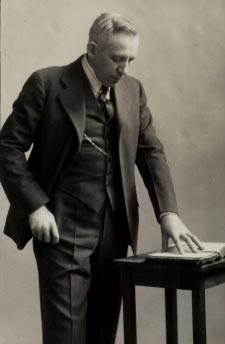THE IMPORTANCE OF ARCHIVES

Did you know that God mentions an archives in the Bible? Ezra 6:1 says, “Then Darius the King made a decree, and search was made in the house of the rolls, where the treasures were laid up in Babylon.”
In this scripture the word “rolls” means “archives.” It literally means, in the house of books or in the royal library or record chamber. In the palace, two small chambers were discovered where public records or historical documents, that were valuable, were kept. It was a place where the “treasures were laid up.” These treasures were important documents that were located in a secure place where they would not be destroyed. Many times it would be like an underground apartment, as indicated by the words “laid up,” which means “made to descend.”
A document is something that is written, printed, etc., that gives information or proof of some fact; an object used as evidence. In Bible days, documents that would be considered important would consist mostly of letters and maps. These “rolls” contained the records of past ages. Man’s memory could not retain all these events, so the actual documents were placed where they could be preserved to go down in history.
In the natural realm, history is so important that they write history books, and they make students study about history in school. But what about our “religious heritage?” How important is that to us today? It would be a pity for the nation and the Church to let die the events that made them what they are. History gives permanence to an event. It has a way of giving purpose to life. History causes dead men to live!
The mighty minds which have gone before us have left treasures for our inheritance; and the choicest gold is to be had for the digging. God has given Reverend Carver the privilege, over the past twenty-five years, to dig for some of the hidden treasures of our “religious” past. He’s allowed him to acquire a collection that has been appraised to be one of the best in the world.
Because so many ministers of the past failed to preserve their ministries, Faith Outreach Archives, in a very real sense, guards the memory of our religious past. In the interest of generations that will come after us, we are working to store up and recall the information that is an important witness of our past.
THE HERITAGE OF THE PAST IS THE SEED THAT BRINGS FORTH THE HARVEST OF THE FUTURE
God has allowed Rev. Carver to collect important information on many different ministries. The material was obtained from either the actual minister, himself; a family member, or a friend of the ministry.
As Rev. Carver dug for these treasures, he was able to accumulate all kinds of important documents, such as: 16mm films, sound recordings, sermons, tracts, books, correspondence, diaries, financial and legal documents, photographs, crusade advertisements, etc.
In order to go forward, you must remember from whence you came. The heritage (what is handed down from one generation to the next; inheritance) of the past is the seed that brings forth the harvest of the future. If there is going to be a harvest of souls in the future, then we must preserve the events of the past. That is why an archives is so important.
Faith Outreach Archives provides firsthand information about the past, especially the healing ministry. It is a valuable asset to Christian researchers, Bible scholars, students studying for the ministry, and any other Christian who desires to be used in the gifts of the Spirit.
WHAT OTHERS SAY ABOUT THE ARCHIVES
“The healing movements in the United States from the 1950’s until the present were formative for the development of Christianity outside North America and Europe, as well as contributory to the early impulses of the ‘Charismatic movement’ in the United States, Canada, and Europe. The roots of these traditions are in the ‘Healing Movements’ rather than in the more traditional Pentecostal, Holiness or mainline churches. Carver’s collection is one of the best collections in the world of material documenting the healing movements.”
David Bundy, Librarian & Associate Professor of
Church History, Christian Theological Seminary
Indianapolis, IN